Pride Month at Ann's Place
By Pete Carney, LCSW
Welcome to June, where we celebrate the 52nd anniversary of LGBTQ pride, celebrating the LGBTQ community throughout the month. At Ann’s Place we are taking a renewed look at our work serving the LGBTQ community and making sure that their unique experiences with cancer are met with support and care.
Pride is a commemoration of the 1969 Stonewall riots, where a group of LGBTQ individuals, having faced decades of police brutality and the constant threat of physical violence for the mere act of existing, collectively said “no more!” to the oppressors through a night of civil disobedience in Greenwich Village, NY. This one night served as starting point for the modern LGBTQ movement including Marriage Equality and Transgender Rights.
Today, LGBTQ individuals enjoy greater visibility and acceptance in our larger society, but for many, particularly those in the most vulnerable groups (youth, transgender/gender non-conforming, communities of color), pervasive homophobia/transphobia still exists, too often in their daily lives.
As an openly gay men, for 21 years, I can still remember the fear and uncomfortable feelings of being in a doctor’s office and being asked questions about my personal life, that at one time, I was not able to ask myself, much less discuss with another person.
As time went on and I became more comfortable with my gay identity I found two extremes in healthcare that left me struggling to meet my healthcare needs. On one hand was the healthcare provider, who while comfortable with the word “gay”, would become visibly uncomfortable with any discussion of my sex life and its potential impact on my risk for cancer. On the other hand, was the healthcare provider so focused on my sex life and risk for HIV, that other medical concerns were ignored or minimized to the point that it felt like my only concern as a gay man should be not to contract HIV.
As a gay man, as it relates to my heightened risk for anal cancer, I have needed to do my own research, presenting this info to medical providers, often being met with a lack of knowledge or direction of next steps for minimizing my cancer risk and obtaining early screenings. I have, at times, had to travel long distances, to highly LGBTQ populated areas, to meet with medical providers who regularly treat LGBTQ folks, to get fully informed care as well as certain cancer screenings. As a well-educated, employed, gay, white male I recognize that many in the LGBTQ community do not have the same privilege and opportunity that I have, to gain access to this level of care.
When we at Ann’s Place turn our attention to the LGBTQ community and Cancer, we can see a variety of health disparities that put LGBTQ individuals for higher risk of cancer and poorer treatment outcomes.
In a 2017 national survey of the LGBTQ community, 8% of lesbian, gay, bisexual, and queer individuals and 29% of transgender individuals reported that a doctor had refused to see them because of their sexual orientation or gender identity. In this same survey, 9% of lesbian, gay bisexual, and queer individuals and 21% of transgender individuals reported that a doctor or other healthcare provider used harsh or abusive language when treating them. 23% of transgender respondents reported that a doctor or health care provider intentionally misgendered them or used the wrong name.
These negative experiences can leave LGBTQ individuals untrusting of medical providers, and less likely to access medical care, particularly preventative services. Additionally, LGBTQ individuals have significantly higher rates of being under insured or uninsured, than their straight and CIS gendered counterparts, limiting their access to healthcare services, including cancer screenings. Too often LGBTQ individuals do not get their cancer diagnosis until they are severely ill and treatment options are limited or ineffective. LGBTQ individuals continue to have higher rates of obesity, smoking and drug/alcohol abuse, all precursors to many common forms of cancer.
Moving form NYC to Putnam County 2 years ago, in many ways I started my “coming out” process all over again, needing to make decisions in each new community encounter, including with medical providers, whether I should disclose my gay identity, and how this disclosure could impact my safety, comfortability and access to the services I may need. So, in celebration of LGBTQ Pride, I ask everyone to take a moment and ask yourself, how well do you and the place where you may work welcome LGBTQ folks into your environment? Do you have a Pride Flag up? Do you have images on your websites, in your workplaces that recognize and celebrate the LGBTQ community? We all can play a part in creating a more inclusive community for everyone! To learn more about the impact of cancer on the LGBTQ community and ways to create more welcoming and inclusive environments, check out these great resources:
National LGBT Cancer Network: https://cancer-network.org/
Queering Cancer: https://queeringcancer.ca/




